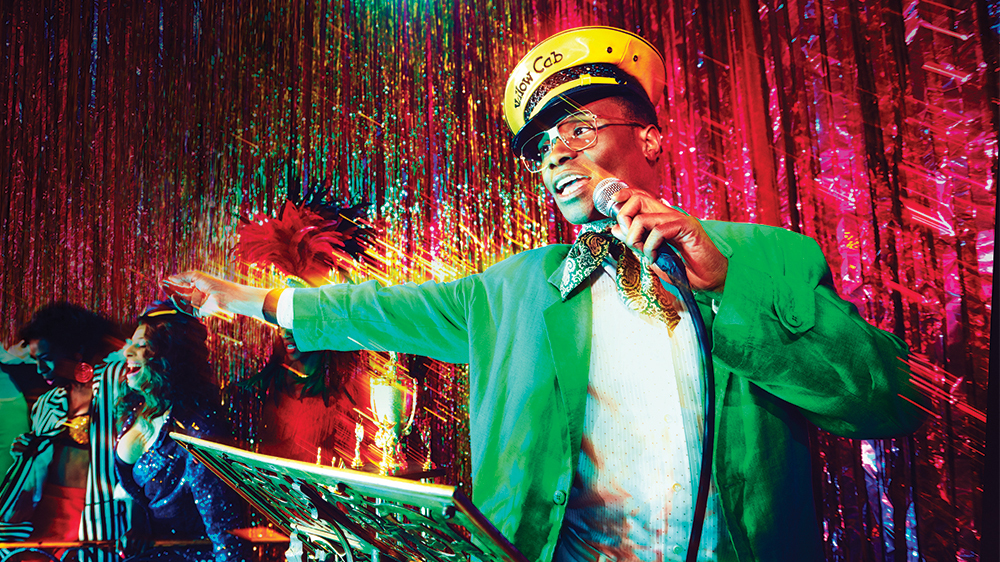Surveying a life in shambles, the “Pose” protagonist sums it up:
“The world is cold and cruel and full of disease,” Pray Tell says.
That seems like a line about today, but “Pose” – starting its final season at 10 p.m. Sunday (May 2) on FX – is set in 1994, when the gay community was shredded by AIDS and police crackdowns. For Billy Porter (shown here in an earlier and cheerier season), who stars as Pray, the eras merge. “I think the parallels are quite profound,” he said.
Porter, now 51, reached Broadway just as the crisis was soaring. He was a “Five Guys Named Moe” understudy in 1992, then was Teen Angel in the “Grease” revival in ‘94 – a peak year for AIDS deaths.
The impact lingers, he said in a virtual press conference. “As a Black gay man who lived through the AIDS crisis, I have been dealing with a lot of PTSD during this COVID time. It’s very reminiscent.”
“Pose” began with an air of joy. It recreates the “balls”: Contestants had spectacular costumes and strident attitudes; emcees (including the fictional Pray Tell) proclaimed and a panel judged. There was a buoyant mood, said Janet Mock, 38, a trans-gender “Pose” writer-producer-director.
“Before there was any legislation (to protect) LGBTQ people,” Mock said, “there were waves of folks who were outsiders and renegades and trailblazers, and they made a way out of no way. ‘Pose’ has always been the celebration of the ways in which our people just make something out of nothing.”
Part of that comes in rebuilding lives. Some of the characters were homeless and penniless, rejected as gay and/or transexual. But they were welcomed into “houses,” living, eating and competing together.
And part comes from the sheer joy of the performances at balls. “Being the emcee and not being at the rehearsals, I never knew what was coming …. I was always blown away,” Porter said.
Like many actors, he spent time trying to be in the mainstream. He was, he said, “trying to fit into a masculinity construct that society placed on us, so I could eat.”
MJ Rodriguez, who plays Blanca, knows about adjusting to expectations. She’s 30 and has been doing theater since she was 11 – three years before coming out as trans and gay. Starting out so young, she said, she was “feeling like I had to be limited in what I had to say.”
But the “Pose” actors were urged to speak up. When Dyllon Burnside was cast as Ricky, he asked creator Steven Canals to tell him more about the character. “Steven looked at me point-blank and said, ‘Who do you think he is? Where do you think he comes from? Where do you think he should go?’”
The show has adjusted characters to fit the actors and the circumstances. The Damon character had to be set aside this year, Canals said, because the actor wasn’t available. “Ryan Jamaal (Swain) was dealing with a personal, family issue.”
Viewers assume many such adjustments were made when COVID struck. “Pose” had run in the summers of 2018 and 2019; it missed 2020 … returns 21 months after its previous new episode aired … and has a final season of only seven episodes – two on May 2, then one apiece for five Sundays.
Still, Canals insists that from the beginning, he and producer Ryan Murphy “had a very specific ending in mind” and that’s what happens (quite quickly) now.
The season starts at the bottom, with Pray Tell deep into despair and alcoholism. It’s a huge performance, part of a late-building career.
In 2013, 20 years after his first Broadway job, Porter won a Tony for best actor in a musical (“Kinky Boots”); six years later came a TV honor: “I turned 50 the day before I won an Emmy Award for best lead actor in a drama series. There was never, ever a space in my brain to dream what ‘Pose’ is.”
He remains optimistic, while portraying a dark era he lived through. “The best news about that is that I survived ….It’s when we come together, and we lead with love, that we get to the other side.”
